Published
- 01:00 am

Phos by Ingenico, the global leader in software point-of-sale (SoftPoS) orchestration for businesses, has partnered with Discover Global Network to enable its merchants to accept payments from Discover, Diners Club International® and network alliance Cardholders worldwide.
Discover Global Network is the fastest-growing global payments network1 with more than 305 million cardholders2, accepted across 70 million merchant acceptance points and millions of micro-merchants. It includes Discover Network, Diners Club International, PULSE® and more than 25 alliance partner networks across the globe.
The collaboration aims to expand global adoption of Tap on Mobile technology through Phos’ innovative SoftPoS solution. By leveraging the extensive reach of Discover Global Network, Phos is committed to delivering smooth, fast, and secure transactions for Tap on Mobile users which will also include enablement of the Discover Global Network sensory brand. This implementation features an audio mnemonic and animation to further support consumer confidence upon approval of a Discover Global Network transaction.
Tap on Mobile eliminates the need for expensive hardware and simplifies payment processes by enabling customers to accept card payments in a secure and contactless fashion on any NFC-enabled device - such as a smartphone or tablet.
This means merchants can make use of the hardware they already own rather than having to invest in costly additional hardware i.e., traditional chip and pin machines and rapidly expand their number of payment acceptance points.
The partnership offers even greater flexibility to merchants, expanding acceptance into new market segments and generating incremental revenue for businesses while improving the overall cardholder experience.
In today's evolving payment landscape, merchants, especially MSMEs in emerging markets, face significant cost and integration challenges. Additionally, enterprise merchants often encounter isolated hardware-based acceptance methods that result in inconvenient payment experiences for customers and overly complex processes for businesses.
Through its partnership with Discover Global Network, Phos aims to help merchants make their payment operations more efficient by addressing these pain points through their existing hardware.
Matt Sloan, VP, International Markets at Discover, said: “Discover Global Network is recognised as the fastest-growing global payments network1. With our vast cardholder base and widespread acceptance, this is an invaluable partnership that will enable Phos merchants worldwide to deliver more choice and flexibility to their customers and our cardholders at the point of sale. As consumer financial behaviours shift toward ever-more contactless methods, our partnership with Phos is part of our continued commitment to providing our customers with greater convenience and more ways to pay.”
Brad Hyett, CEO of Phos by Ingenico, added: “Our partnership with Discover Global Network is the latest step in our mission to revolutionise payment acceptance for merchants worldwide. The extensive reach of Discover Global Network and commitment to providing innovative payment solutions align perfectly with our vision. By working together, we can offer our merchants an effortless and cost-effective payment experience, regardless of their location or size. It highlights our unique offering being both phone and bank agnostic.”
Phos currently has 23 certified acquirer connections, as the fintech continues to expand globally. It plans to increase this number exponentially to satisfy the needs of tier-one providers and requirements across international markets. Additional acquiring certifications are currently in progress and will be announced this year.
Its latest partnership with Discover® Global Network comes amid growing market interest in SoftPoS and Tap to Pay technology. Phos has recently been acquired by Ingenico, the global leader in payment acceptance solutions.
Related News
- 08:00 am
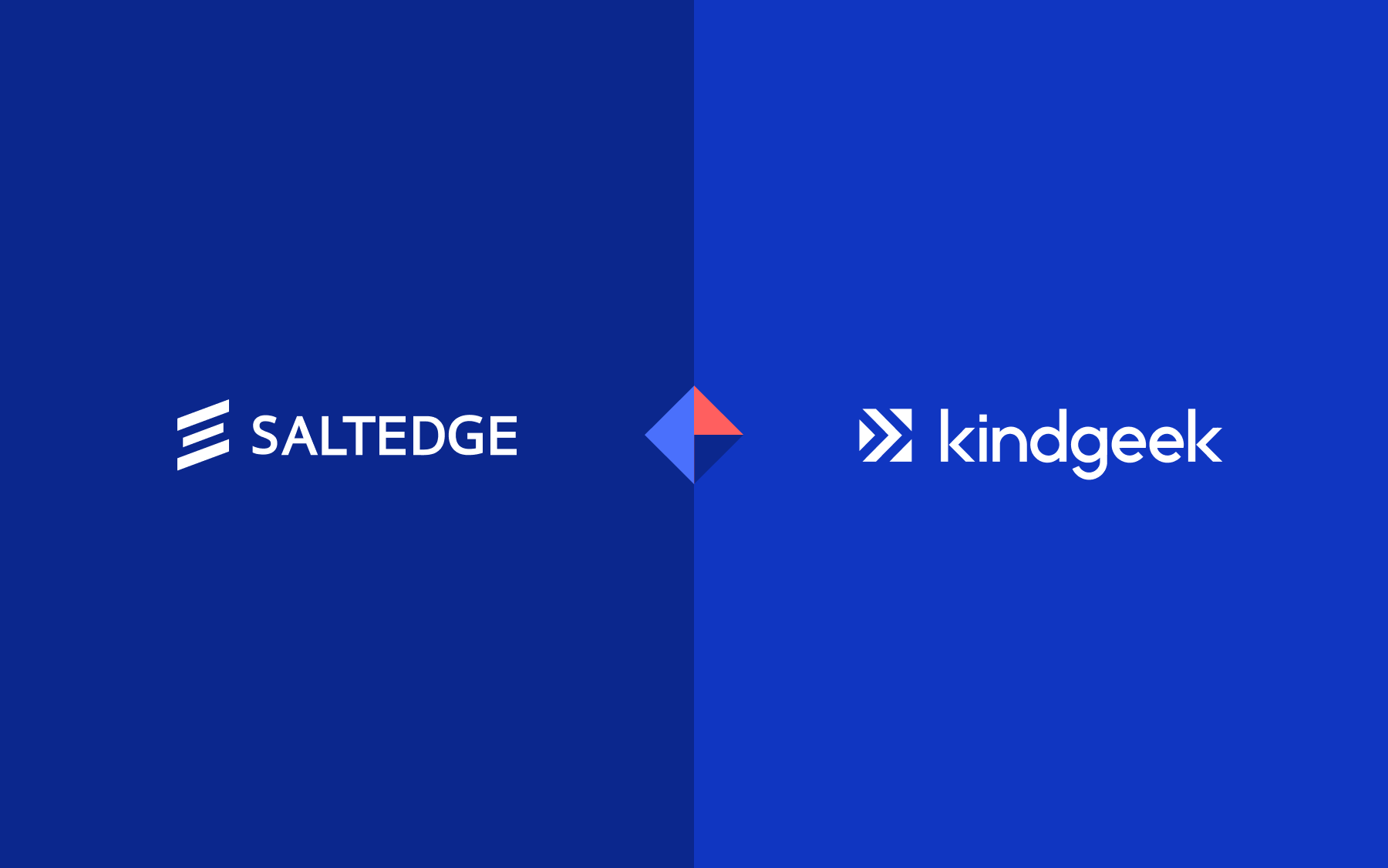
Kindgeek, a leading one-stop shop fintech software developer, and Salt Edge, a top open banking service provider, announce their partnership for providing PSD2 and open banking solutions to the fintech landscape.
As financial services continue to become more digital, opportunities arise to develop more efficient financial services and advance economic growth. In this competitive fast-paced environment, businesses must keep up with optimising their processes and digitally personalising their offerings. Modern companies like Kindgeek and Salt Edge step in to help enterprises build and launch trustworthy, open banking-enabled fintech products as they navigate the future of innovation.
Partnering with Salt Edge, Kindgeek evolves into a one-stop shop with limitless opportunities in open banking technologies. With connectivity to 5,000+ financial institutions across the globe, Salt Edge offers a comprehensive range of open banking solutions, including Open Banking Compliance for EMIs and banks, account aggregation and payment initiation for PFMs, accounting companies, lenders, and e-commerce, and any other companies that want to innovate. Therefore, more companies from different industries globally can add a new and secure payment method, and get instant access to bank data, while banks and EMIs now have quicker access to open banking and SCA compliance solutions.
A digital wallet developed in the UK for managing personal finances and financial goals is now effectively combining the open banking solutions of Salt Edge with Kindgeek’s web and mobile software development services. Having become an enriched and open banking-compliant financial management platform, the eWallet is now servicing over half a million clients.
“Together with Kindgeek, we can broaden our reach and assist more companies in developing innovative solutions. We both share the mission to take the burden off various types of businesses and enable them to integrate cutting-edge services into their offerings, increase business agility, and enhance customer satisfaction, while also complying with the open banking regulatory requirements.” - Alina Beleuta, Chief Growth Officer of Salt Edge
“We are excited to partner with Salt Edge to drive innovation and transformation in the fintech industry. This collaboration allows us to leverage Salt Edge’s expertise in open banking, while our software development capabilities will enhance Salt Edge’s product offerings. Together, we aim to create impactful solutions enabling businesses and individuals to thrive in fintech.” - Yuriy Gnatyuk, COO of Kindgeek
Related News
- 03:00 am

Juniper Research has named LexisNexis® Risk Solutions as an Established Leader in the “Financial Crime Prevention Competitor Leaderboard 2023-2027.”
The report praised LexisNexis Risk Solutions for its combination of excellent data coverage with its experience in analytics, resulting in a highly competitive and powerful advantage in the market.
Juniper Research assessed 21 financial crime prevention vendors, basing its scoring on market presence, product and positioning, as well as the vendor’s capacity and capability.
“In the highly competitive financial crime prevention market, LexisNexis Risk Solutions offers comprehensive solutions with advanced analytics providing customers with better identity management,” said Nick Maynard, vice president of Juniper Research’s Fintech Market Research. “As they continue to expand their reach through a growing portfolio of acquisitions, it will only further strengthen their position in the market and allow new access into niche market segments.”
LexisNexis Risk Solutions provides a broad set of capabilities that successfully unify online and offline identity attributes to provide a complete view of client identity, enabling highly successful risk-based authentication to help customers fight fraud, mitigate risk and remain compliant. Juniper Research also highlighted past corporate acquisitions that enhanced LexisNexis Risk Solutions ability to provide behavioural biometrics-based verification and authentication.
Steve Elliot, Managing Director of LexisNexis® Risk Solutions in the UK and Ireland said, “With financial crime growing and the challenges of responding to regulations and sanctions in real-time, it is essential our customers have a full suite of risk assessment and authentication tools to stop financial crime in its tracks. We strive to meet the needs of our customer base by staying ahead of new, emerging trends as the financial crime landscape continues to evolve.”
Related News
- 03:00 am
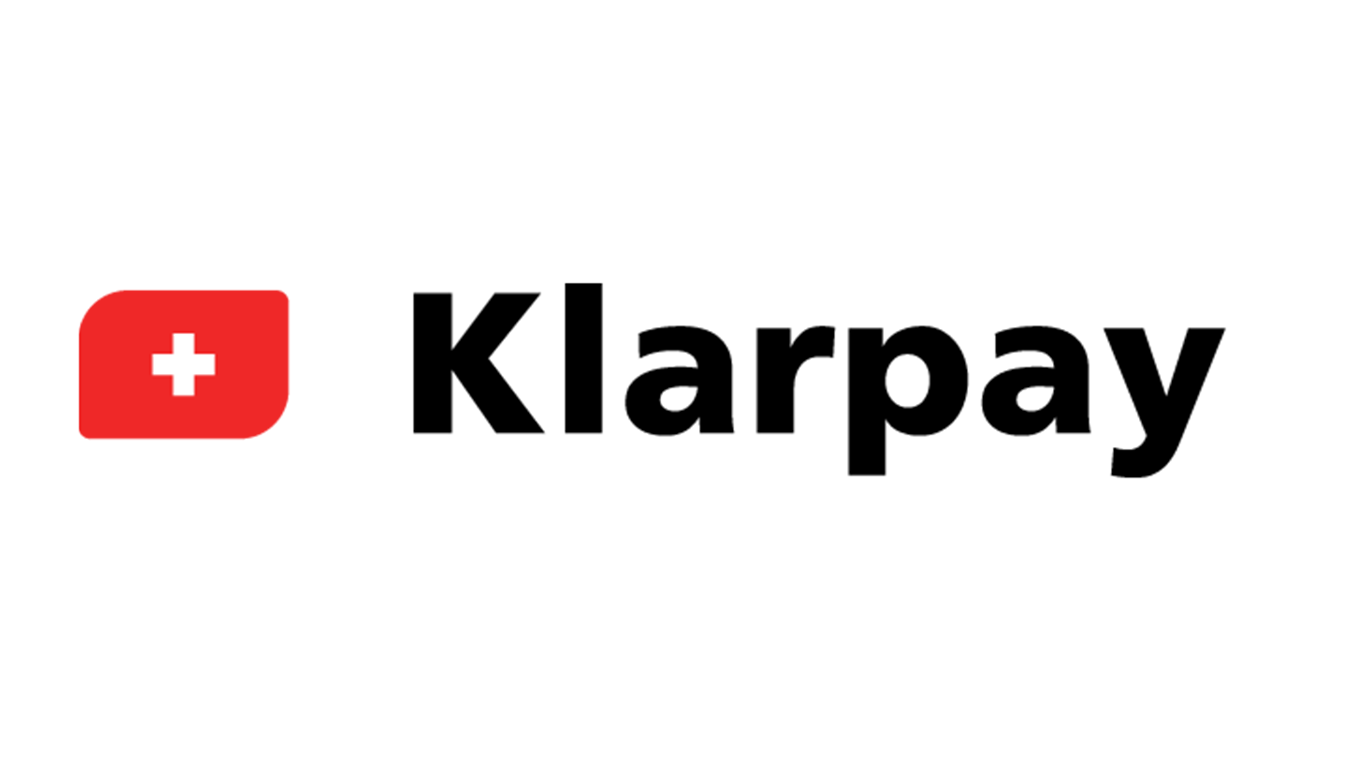
As a proud Swiss company, Klarpay AG recognises the potential and dedication displayed by the young athletes in the Swiss Youth Olympic Sailing. By extending support to this emerging team, Janut Angehrn and Julie Herzig, Klarpay aims to provide them with the necessary support to succeed internationally and represent Switzerland.
The partnership between Klarpay AG and the young sports team is founded on shared values, including the pursuit of excellence and teamwork. By aligning ourselves with these values, we strive to inspire individuals of all ages to pursue their dreams, overcome challenges, and foster a culture of achievement and resilience.
"We are thrilled to announce our support for the young sports team, part of the Swiss Youth Olympic talent pool," said Martynas Bieliauskas, CEO of Klarpay AG. "We strongly believe in the power of sports to unite communities, build character, and inspire greatness. This partnership reflects our dedication to supporting excellence, and we extend our best wishes to Janut Angehrn and Julie Herzig as they embark on their journey to the upcoming Swiss, European, and World Championships."
Related News
- 09:00 am
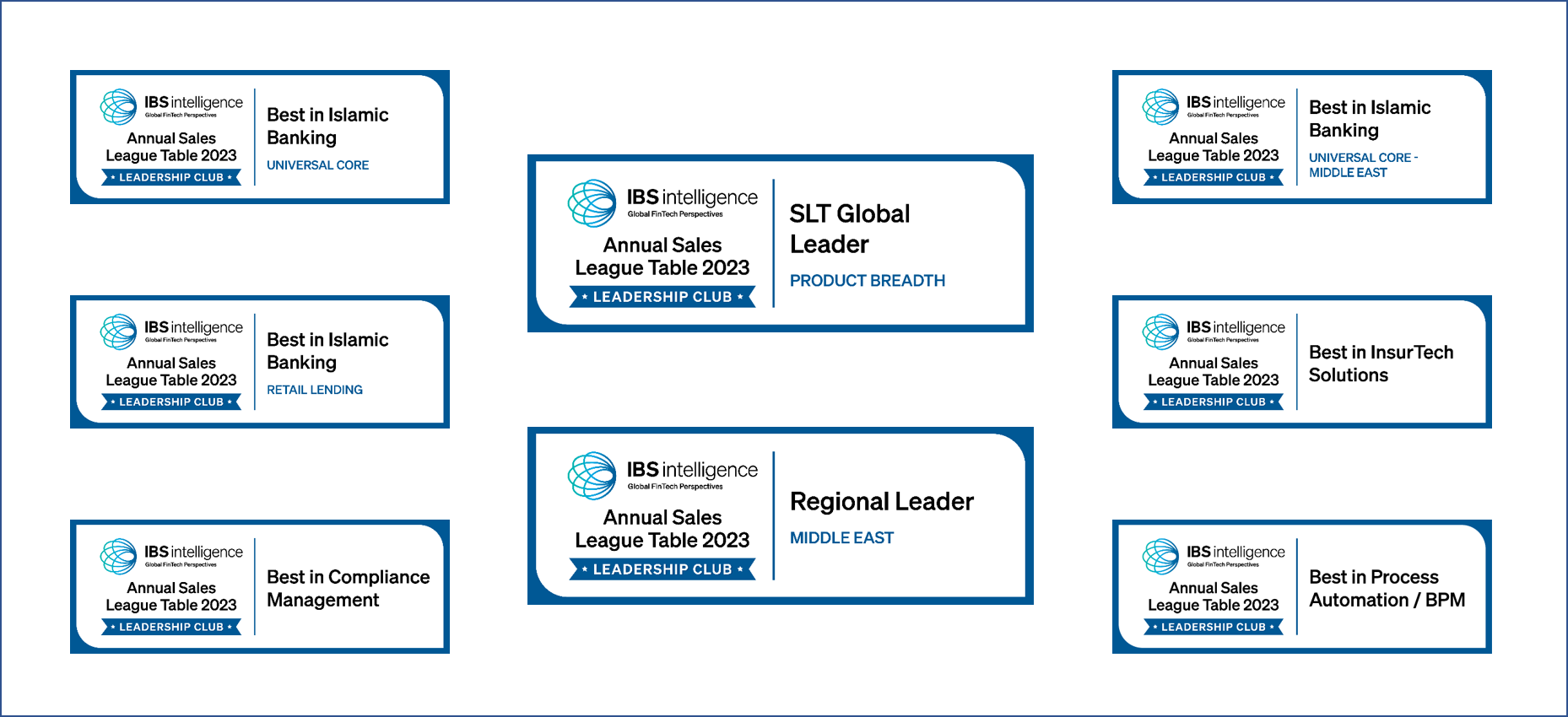
Azentio Software (“Azentio”), a Singapore-headquartered technology firm owned by funds advised by Apax Partners, has announced that it has achieved top positions in multiple categories in the exclusive Leadership Club of IBS Intelligence (IBSi) Sales League Table (SLT) 2023, the globally acknowledged annual performance barometer for measuring technology supplier performance.
Azentio has been ranked Number One in the following categories:
- Product Breadth
- Islamic Banking I Retail Lending (for the Azentio ONEBanking platform)
- Process Automation / BPM (for the Azentio Islamic Banking suite)
- Insurtech (for the Azentio ONEInsurance platform).
The company has also been announced as the second-highest-ranked in these categories:
- Regional Leaders – Middle East (for the Azentio ONEBanking platform and the Azentio Islamic Banking suite)
- Best in Islamic Banking – Universal Core (for the Azentio Islamic Banking suite)
- Best in Islamic Banking Universal Core – Middle East (for the Azentio Islamic Banking suite)
- Best in Compliance Management (for Azentio ONEBanking – Risk & Analytics solution).
While IBSi SLT recognizes technology vendors’ sales performance across hundreds of system selection engagements carried out across the globe, the SLT Leadership Club identifies the prominent systems that have made their mark across various categories of systems as well as geographies.
Commenting on Azentio’s achievement, Nikhil Gokhale, Head of Research Platforms, IBSi, said, “Congratulations to Azentio for making it to the SLT Leadership Club 2023 across eight key categories, covering Islamic core and retail lending, compliance management, insurtech, and process automation, among others. Azentio's impressive range of software products, which allows them to deliver tailored solutions for industry-specific challenges, was highlighted by their win in the Product Breadth category. These wins further confirm Azentio's position as a leading player in the financial technology sector, showcasing the depth and breadth of their portfolio.”
Krish Narayanaswami, Managing Director - Banking, Financial Services, and Insurance at Azentio, stated, “We are delighted that Azentio has achieved top ranking in the eminent IBSi SLT Leadership Club 2023 across various categories, at both the global and regional levels. Being selected as Global Leader in Product Breadth truly establishes our solution suite as an all-encompassing and proven one on the market that has the product depth and vertical breadth to meet the unique industry needs of our clients. I believe this recognition highlights the trust placed in us by our valued clients and underscores their successes in overcoming unprecedented global challenges to thrive and prosper by leveraging continuous technology innovations.”
IBSi SLT 2023 received a wide participation, with 57 technology suppliers submitting 1,500+ deals won in the calendar year 2022, spanning 134 countries. Only 1,281 deals made it past a rigorous assessment process to this edition’s final SLT rankings, which included 913 global deals and 368 domestic deals.
Related News
- 02:00 am
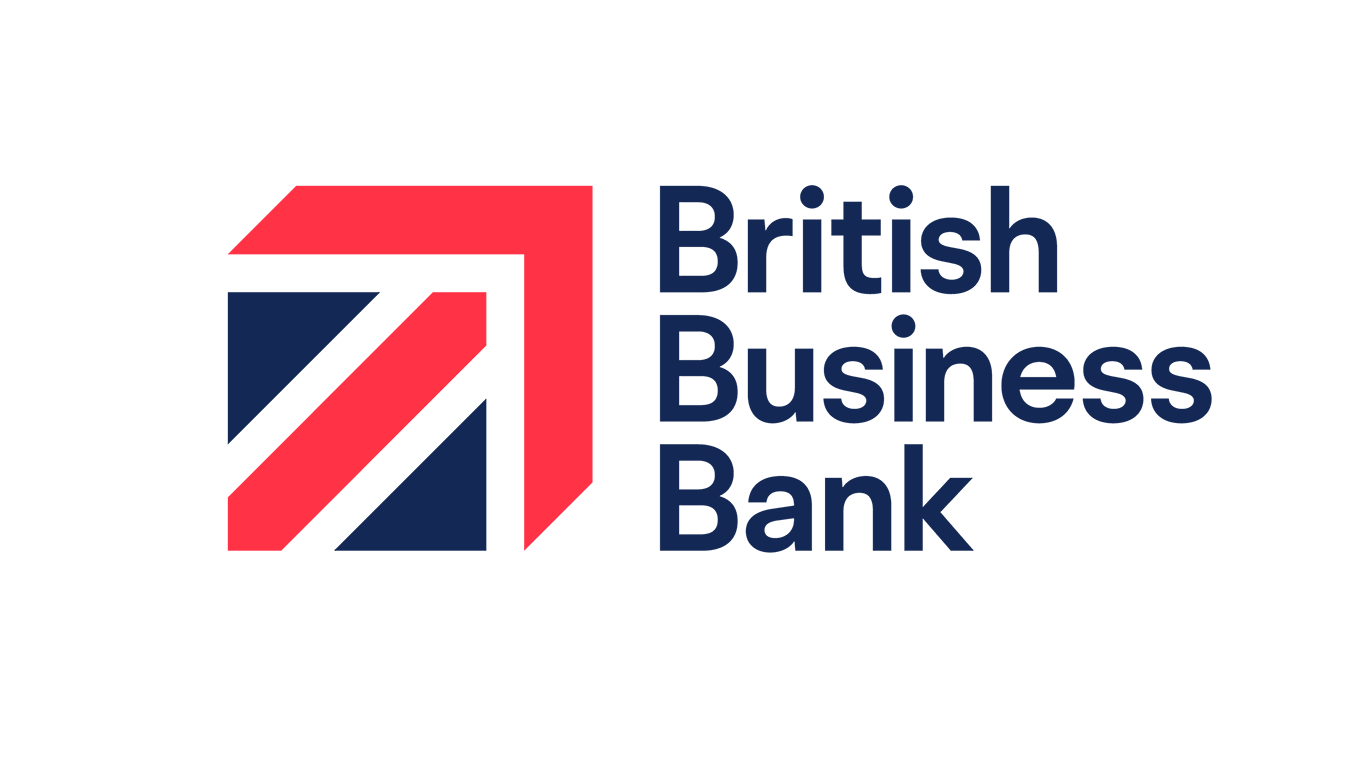
Recent research from the British Business Bank found there has been no improvement in the value of investment deals to all-female founder teams over the past decade. While the Small Business Equity Tracker 2023 found that 27% of deals went to teams with at least one female founder, the highest proportion ever, all-female teams accounted for 9% of deals in 2022 but only received 2% of funding, which reflects no improvement since 2011.
A new report published today, Finding What Works: Pathways to Improve Diversity in Venture Capital Investment, reveals that despite some progress, diversity in venture capital investment remains extremely low and identifies pathways to enhance diversity in venture capital. Women, people from Ethnic Minorities, and those from lower socio-economic backgrounds (proxied by education) are significantly less likely to receive venture capital investment compared to their male or White counterparts, or those that went to ‘elite’ universities.
However, there are some signs of progress in improving the diversity of investment deals. The report reveals that 13% of first-time equity deals, a useful indicator of the strength of the investment pipeline, went to all-female teams in 2022 and 10% to all-Ethnic Minority teams. All-Ethnic Minority teams also received 19% of first-time investment. Further, founding teams with at least one ethnic minority founder made up 42% of investment value of first-time deals in 2022, up from 14% in 2013.
Louis Taylor, CEO, British Business Bank, said: “The journey of raising venture capital can be challenging – but for underserved entrepreneurs, the barriers can be far higher and this needs to change. Our Finding What Works: Pathways to Improve Diversity in Venture Capital Investment report provides clear, actionable, and evidence-based pathways for UK funds to improve diversity in investment, which I hope will stimulate both discussion and action to improve outcomes for diverse entrepreneurs and the wider UK economy. Together, we can create the systemic change needed to unlock the full potential of talented UK entrepreneurs, wherever or whoever they are.”
To continue and accelerate this positive trajectory, and to reduce barriers to investment faced by diverse teams, the British Business Bank has identified three clear, actionable and evidence-based pathways for UK funds to improve diversity in venture capital investment, based on the experiences of 40 VC investors and 124 venture-backed and ready businesses. This research brings together evidence for the first time on effective ways to improve the industry’s track record on investing in a diverse group of entrepreneurs.
The British Business Bank recommends firms consider the pathways set out in this report, make a commitment to consistent action over a sustained period, and to track and monitor progress. Joining initiatives such as the Investing in Women Code is a further means to take action with support from others in the industry on a similar journey.
Promoting diversity at the top
Just 3% of those in senior investment and non-investment roles are women from an Ethnic Minority background, with no senior Black women identified in a BVCA UK survey.
The first pathway identifies that the lack of diversity within venture capital portfolios in terms of characteristics of founders is a reflection of low diversity within venture capital firms themselves. Findings from the survey suggest that increasing diversity at the top can lead to better investment decisions, free from biases that may be typical for a single homogeneous group. Implementing such changes can lead to development of a culture of inclusion both for diverse founding teams, who will find it easier to communicate with people they can relate to, and for venture capital staff at all levels.
Fostering inclusion in the investment pipeline
The survey revealed that 65% of venture capital firms admitted they do not approach their search for investment opportunities any differently when they seek to identify underrepresented founders.
Focus on a variety of ways to actively identify diverse founding teams, giving them a chance to secure funding, will lead to a more diverse investment pipeline. Networking within office hours is described as an effective way of increasing diversity, with some consideration for hours to accommodate family care being important, in contrast to more typical evening networking events. Attendance at accelerators is also considered an efficient way to identify high-potential business propositions from underserved groups.
Embracing transparency and accountability
Increased transparency and accountability among venture capital firms is key to delivering change and enhancing diversity in venture capital investment. Survey data of venture capital firms in the report finds that the industry needs to be ‘loud and open’ about the challenges, making themselves accountable for delivering positive, measurable change. This can be enacted by participating in industry-wide surveys to provide better quality data for analysis, ensuring clear communication of their investment strategies and commitments to diversity, and their ambitions to increase the proportion of deals with underserved entrepreneurs.
Venture Capital investment can play a critical role in starting and scaling innovative companies across the country that shape the future of the UK economy. According to the report, equity-backed businesses in the UK directly supported 2.2 million jobs and generated 11% of gross domestic product. The scale of under-investment identified in the report suggests the UK could have significant untapped talent and economic growth potential. To maximise its impact, it is crucial that this investment reaches a diverse group of entrepreneurs.
Related News
- 08:00 am
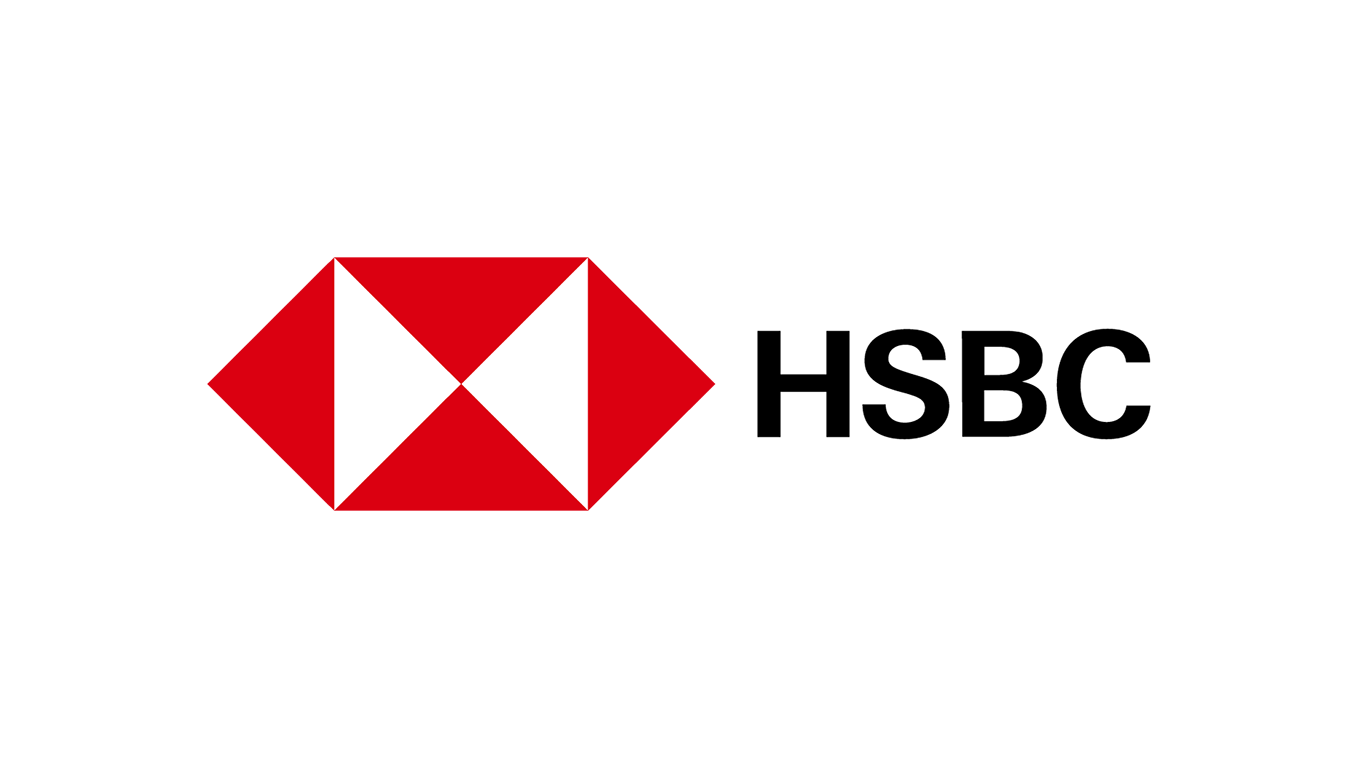
HSBC is the first bank to join BT and Toshiba’s quantum-secured metro network - connecting two UK sites using Quantum Key Distribution (QKD) to prepare its global operations against future cyber threats. This technology will be trialled in multiple scenarios, including financial transactions, secure video communications and one-time-pad encryption, as well as AWS edge computing capabilities using an AWS Snowball Edge device.
HSBC will trial the quantum secure transmission of test data over fibre-optic cables between its global HQ in Canary Wharf and a data centre in Berkshire, 62km away. QKD is an important technology that uses particles of light and the fundamental properties of quantum physics to deliver secret keys between parties. These keys can be used to encrypt and decrypt sensitive data and are safe from eavesdroppers or cyber-attacks by quantum computers.
CEO of HSBC Bank Plc and HSBC Europe, Colin Bell said:
“Our customers, clients and employees expect us to have safe and secure operations and resilient cybersecurity, so we must stay ahead of the curve.
“That is why we are already preparing our global operations for a quantum future. We are spearheading industry-leading trials, recruiting highly trained experts, and investing in strong, strategic partnerships to explore how we could deploy these technologies as they develop.
“Today’s milestone proves the importance of collaboration and demonstrates the significant innovation and progress that can be achieved when industry leaders join forces.”
The insight generated by HSBC’s exploration of quantum-secure communications could have far-reaching implications for the bank - providing crucial evidence into the advantages of quantum technology and driving the development of applications in financial cybersecurity.
HSBC's quantum scientists, cyber-crime experts and financial specialists will be better able to analyse the potential threat posed by powerful quantum computers and devise strategies to safeguard sensitive information.
In the future, experts predict QKD will play a key role in protecting financial transactions, client data and proprietary information across the financial sector. HSBC processed 4.5 billion payments for their customers last year, worth an estimated value of £3.5 trillion. These electronic payments rely on encryption to protect customers and businesses from cyber-attacks.
HSBC’s quantum strategy includes trials of Quantum Key Distribution (QKD) and Post Quantum Cryptography (PQC). HSBC is also exploring applications in quantum computing across optimisation, simulation, and machine learning.
BT Chief Security and Networks Officer Howard Watson said:
“As the UK’s leading network provider, it’s critical we ensure our digital infrastructure remains secure against new quantum-based threats. Having launched the world’s first trial of a commercial quantum-secured metro network in partnership with Toshiba, we are delighted that HSBC has become the first bank to join.
“This trial enables global industry partners to collaborate on the next era for network security. We look forward to co-innovating to develop and prove further use cases, demonstrating the power of quantum communications in the UK and worldwide. "
Shunsuke Okada, Corporate Senior Vice President and Chief Digital Officer, Toshiba Corporation said:
"Toshiba has been supporting the advancement of quantum technologies for more than 30 years, including the development of our QKD quantum-safe security solution.
"Collaboration and partnerships play a key role in this. The commercial trial – which brings together Toshiba's QKD technology, AWS' edge compute services, and Toshiba and BT's quantum secure metro network, will deliver secure and effective communications for HSBC.
"This quantum-secured connection that leverages AWS edge compute services in a commercial network represents a milestone moment in the adoption and commercialisation of quantum-secure networks. We look forward to working with HSBC to keep their customers' data safe and continue applying quantum technologies to real-life use cases."
AWS Vice President of Engineering Bill Vass said:
"Quantum Networking is a core pillar of AWS's quantum strategy to explore quantum technologies and bring new solutions to customers. This proof-of-concept is an exciting and important step toward understanding the commercial viability and scaling required to move quantum networking forward from the lab to the real world.
“HSBC is a great example of an innovator preparing for the quantum era. By investing in and developing quantum-resistant cryptography strategies today, they are laying the groundwork to establish highly secure communication approaches for the future and keeping data security a top priority for customers."
HSBC has its customers at the heart of everything they do as they strive to deliver the next generation of digital banking products and services. With their size and global reach, they deliver digital innovations for customers worldwide at speed and scale, with greater resiliency and at a lower cost. Working with influential technology organisations and ground-breaking fintechs, HSBC is playing a leading role in the evolution of financial services globally.
By harnessing the latest technology, they can better understand their customers’ needs and respond to them faster - providing seamless, personalised experiences – available anywhere, anytime. They are embracing and employing digital innovation to transform banking and open a world of opportunity for customers, colleagues and the future of HSBC.
Related News
- 06:00 am

Mambu, a leading SaaS cloud banking platform, today announced it is now available on Google Cloud Marketplace. This opens the door for more fintechs, neobanks, traditional banks, and non-financial institutions to embrace cloud technology.
The announcement builds on Mambu's existing partnership with Google Cloud, which has allowed the fintech to expand its reach and seamlessly deliver its core banking services globally. By making Mambu available on Google Cloud Marketplace, more shared customers enjoy a highly scalable, secure platform, with open access to new markets, and above all, a decreased time to market as they launch innovative financial products.
This comes at a time where legacy financial institutions will see profits decline by up to 20 to 60 per cent by 2025 if they fail to evolve digitally, according to McKinsey research. As today’s financial institutions are reviewing their banking platforms, many are turning to cloud migrations—with 88 percent agreeing that cloud adoption can help adapt to changing customer behaviours and expectations, enhance operational resilience, and support the creation of new products and services, according to a Google Cloud study.
Kunal Galav, Head of Partnerships at Mambu, said: “Banks were built to last, but today they need to be built to change. As a cloud-native SaaS offering, Mambu fully manages its customers' infrastructure in the cloud. Our strategic partnership with Google Cloud has given us greater control over costs, performance, security and scalability, which we then pass on to our customers. As an extension of this global collaboration, joining the Google Cloud Marketplace allows us to reach even more financial institutions looking to bring solutions to market faster and with greater flexibility. We look forward to partnering with Google Cloud on go-to-market efforts and together delivering a modern core banking system capable of meeting modern demands.”
Toby Brown, Managing Director, Global Banking Solutions, Google Cloud: “To stay competitive, it’s crucial for banks to embrace new core banking technology. Mambu’s partnership with Google Cloud enables the company to unlock new markets and expand its customer base globally by leveraging our scalable, secure cloud technology and working together on joint business strategies. We are pleased to work with Mambu as they support more financial customers in building truly next-generation experiences.”
Shared customers include bob Finance, a Zurich-based digital financial services provider, Bank Jago, an Indonesian-listed bank, and Libertad Soluciones de Vida, an established and regulated microfinance entity in Mexico, all of which leverage Mambu’s cloud banking platform on Google Cloud. The combined power of Mambu and Google Cloud will serve the demand for seamless digital banking and financial experiences on a global scale.
Related News
- 08:00 am
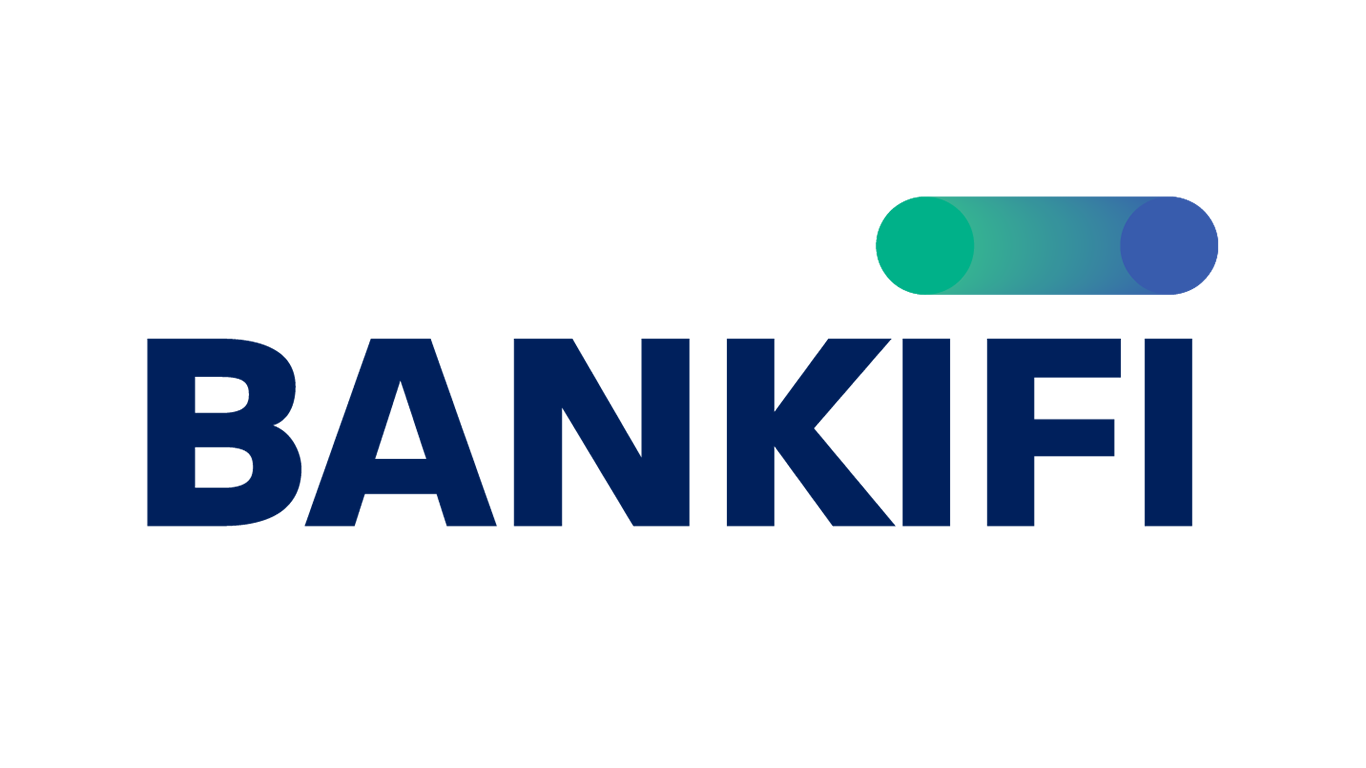
On the back of a momentous start to 2023, leading embedded banking platform BankiFi has denounced three common myths around a new breed of digital-only neobanks that continue to persist despite ample evidence to dispel them.
As part of its continued efforts to highlight the issues faced by small-to-medium-sized enterprises (SMEs), and to promote clarity in discussions related to business banking, banking technology provider BankiFi has launched a campaign to dispel misleading myths around digital-only neobanks. In doing so, the company hopes to highlight the benefits on offer to SMEs of working with banks that prioritise customer-centric approaches.
As outlined by the company’s founder and CEO, Mark Hartley, the three myths are as follows:
1 – Digital Only Neobanks Have Captured the SME Market
The original ambition behind introducing the Banking Competition Remedies (BCR) in 2018 was to expand the competition among providers of financial services to SMEs. Despite significant effort and public commitments made by digital-only neobanks around market share, there is very little evidence to suggest they have captured the business current account market of SMEs away from legacy financial institutions, particularly when it comes to serving as the primary business account.
People may mention that Monzo and Starling have reported meeting their BCR commitments, each achieving over 8% market share on business current accounts. Monzo has stated they have over 250,000 business current account holders, with Starling claiming it also has 520,000 small business accounts. While these numbers look impressive, it’s not clear whether these are primary accounts used by SMEs, or secondary accounts.
Digital-only challenger bank and fintech solutions are often used by SMEs as supplementary services to those already provided by larger companies, including neobanks that provide both physical and digital experiences. Ultimately, the staying power of institutions of this nature has been much greater than many people expected, and it remains where SMEs feel comfortable depositing, sending, and saving money.
2 - Regulatory Hurdles Have Stifled Digital Only Neobank Growth
Last summer, an all-party parliamentary group said the “one-size-fits-all” approach to banking regulation was slowing down the growth of neobanks. Since then, there has been a lot of turbulence in the sector, which has reaffirmed the importance of regulations in protecting the finances of people and businesses. Looking at parallels across the pond, it was down to the lack of regulatory requirements for the smaller banks that resulted in such turmoil.
The UK’s regulatory framework is among the best in the world and should not be weakened just to enable a more competitive field. It’s a good thing that regulators are quizzing digital-only neobanks on areas such as fraud and AML checks to ensure the right protections are in place, the same as they are for more traditional financial institutions. Lighter regulation isn’t the way forward if it’s causing a risk to people’s businesses and livelihoods.
3 - SMEs All Want Different Things from Neobanks
SMEs come in all different shapes and sizes, but they struggle primarily with the same issues. Chiefly, SMEs want banking solutions that help them to pay and get paid, alleviating issues around late payments. In the UK, SMEs are owed an average of £250k in late payments according to Time Finance’s Invoice Finance team.
Likewise, QuickBooks has found that SMEs in the US are owed $304,066 in late payments on average. When paired with research from JPMorgan Chase Institute, which shows that 50 per cent of small businesses are operating with fewer than 15 cash buffer days, then you begin to see the scale of the problem facing SMEs.
Speaking on the company’s announcement, Mark Hartley, CEO and Founder of BankiFi commented: “SMEs are not getting enough value from digital-only neobanks and need more support. By highlighting and dispelling some of the common ‘myths’ that persist around digital-only neobanks, we hope to draw attention to this important issue and to encourage organisations like this to provide more effective support to SME partners.
“The good news is that we’re already beginning to see this happening in the broader neobanking sector. Companies, such as Metro Bank are beginning to talk openly about the importance of combining digital experiences with human-to-human interactions. Providing a mix of physical and digital experiences is what SME customers want. Now, the onus is on digital-only neobanks to begin meeting these expectations.
“In a fragmented SME market, there’s a place for the digital-only proposition that works for a certain type of SME, however, it’s usually for those on the smaller side, or for sole traders. It’s when an SME has more complex needs that the proposition starts to fail.
“The need for this support has never been greater, especially with companies of this size becoming increasingly unstuck on account of cashflow problems. One of the best ways to address cashflow concerns is to give people access to tools that help them to get paid more quickly. Moving forward, this must be a huge priority for business banking partners working with SMEs.
“BankiFi's solution, which is branded and sold through its banking relationships, is helping SMEs to get paid in one to two days on average. Crucially, that’s one to two days from the date an invoice was created, not the due date, which suggests with BankiFi’s white-labelled service, SMEs get paid significantly in advance of the invoice due date. As such, our solution is helping to give SMEs more power over their business finances.”
BankiFi’s latest announcement comes on the heels of being recognised as a key player in Celent’s “Becoming a Challenger in Small Business Banking” Report. Likewise, earlier this year, the company launched a whitepaper, entitled ‘SME Banking Channels: Converting a money pit into a business opportunity`, which was released in partnership with the RedCompass Labs.
Related News
- 03:00 am

Corlytics’ CEO, John Byrne, said, “Corlytics’ second acquisition of the year, this deal marks a new milestone in the growth journey of our platform. We are thrilled to incorporate Clausematch into next level of growth and welcome Evgeny Likhoded as our new President.
Byrne continued: “Clausematch has a proven track record as a global RegTech leader, and the synergies are obvious especially amongst our joint customer base. Clausematch will continue its ongoing work with existing clients and extend our reach to 14 of the top 50 global banks. We look forward to bringing the RegTech industry to the next level of maturity – providing a one-stop-shop RegTech solution that meets and exceeds evolving regulatory needs.”
Clausematch’s founder and CEO Evgeny Likhoded added, “Clausematch was built out of frustration at the inadequacy of existing legacy and incumbent solutions on offer for compliance and legal departments. The value of our offering was quickly recognised, and Clausematch has since become a market leader in the new generation of policy management and compliance software.“We are incredibly proud to join forces with Corlytics on the next stage of our journey. Our clients have been asking for the integration of regulatory content into our platform for a long time. By combining and accelerating our products and client relationships, we will drive a revised compliance operating model and unlock new value for our esteemed clients, redefining the RegTech landscape. Through the combined products, our clients will be able to show to the regulator how a regulatory change is assessed, implemented and communicated internally and be able to provide compliance attestations in a single platform. It’s a first-of-a-kind offering that does not exist today and it will change how financial services firms manage compliance.”









